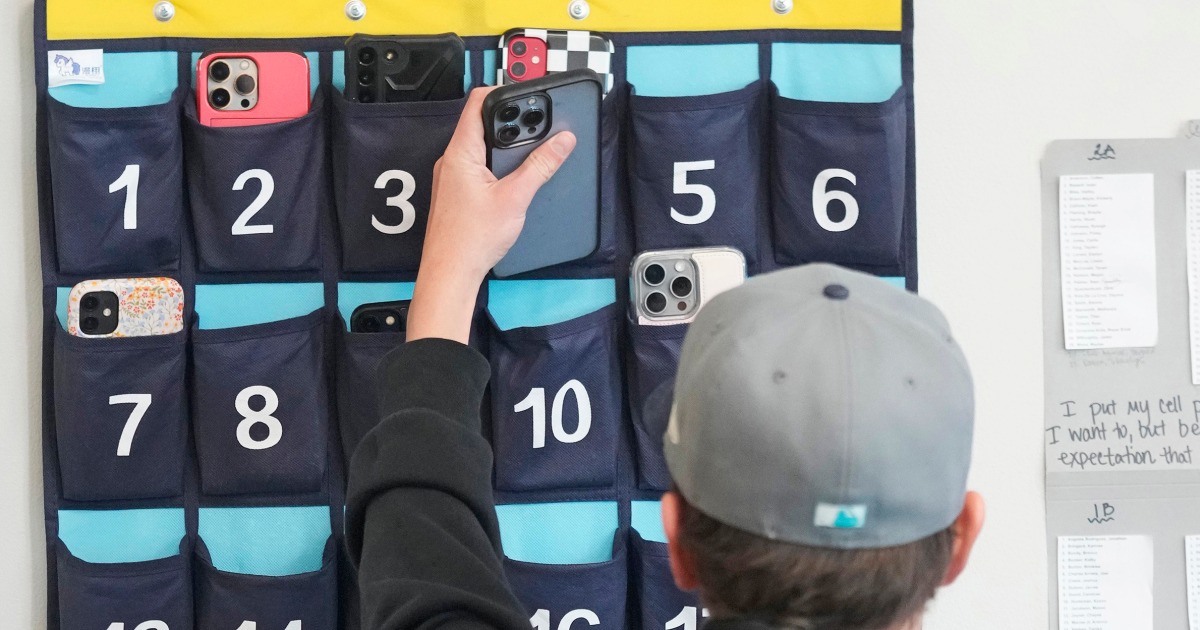In California, a high school teacher complains that students watch Netflix on their phones during class. In Maryland, a chemistry teacher says students use gambling apps to place bets during the school day.
Around the country, educators say students routinely send Snapchat messages in class, listen to music and shop online, among countless other examples of how smartphones distract from teaching and learning.
The hold that phones have on adolescents in America today is well-documented, but teachers say parents are often not aware to what extent students use them inside the classroom. And increasingly, educators and experts are speaking with one voice on the question of how to handle it: Ban phones during classes.



Sure thing, here’s some random studies.
https://www.edweek.org/leadership/digital-distractions-in-class-linked-to-lower-academic-performance/2023/12
https://www.ncbi.nlm.nih.gov/pmc/articles/PMC5648953/
https://cep.lse.ac.uk/pubs/download/dp1350.pdf
Students themselves report phones being significantly distracting, including to other people that aren’t using them, and there’s even evidence that banning phones directly increases student performance, especially amongst low-performing students.
How does this compare against the benefits of exposing teacher bigotry? I won’t pretend to know how to quantify that, but I’m not making the positive claim that banning phones is necessarily worth the loss of ability to expose teachers. My only point is that it is plausible that this is the case, and I think I’ve supplied decent evidence for that. Policy questions very rarely are between “good option” and “bad option”, but rather “bad option” vs “worse option”.